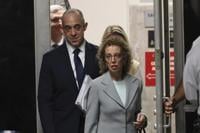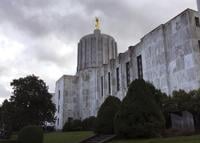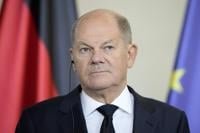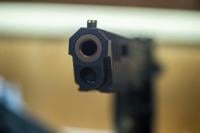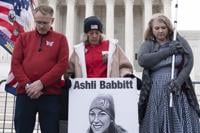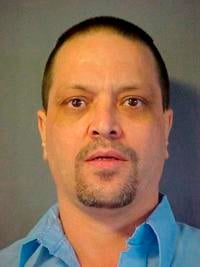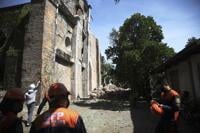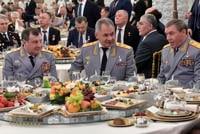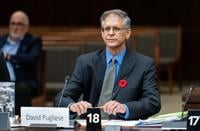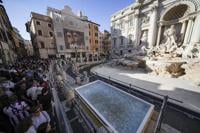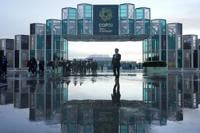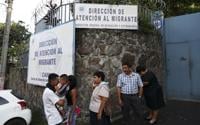NEW YORK (AP) — Donald Trump’s legal team rested its case Tuesday in his hush money trial after calling just two witnesses and opting not to have the former president take the stand in his own defense.
But despite what Hollywood courtroom dramas might suggest, that isn’t all that unusual, according to criminal defense lawyers and former prosecutors.
The reason is simple: Prosecutors need to prove their case, while the defense only has to show there’s reasonable doubt their client committed a crime. And defense lawyers don't necessarily need to call different witnesses to knock holes in a prosecutor's case.
“The burden is on the prosecution, and it’s a high burden,” said Sarah Krissoff, a white-collar defense lawyer and former federal prosecutor in New York.
Trump has been charged with falsifying records at his company in order to disguise the true nature of payments made in 2017 to one of his lawyers, Michael Cohen. Prosecutors say the money was for Cohen's work suppressing negative stories about his boss during the 2016 presidential campaign, including one about an alleged sexual encounter with a porn actor, Stormy Daniels. Trump, who denies Daniels' account, has said the company properly classified them as legal expenses.
Most of the work of defense lawyers, Krissoff and other experts said, happens during cross-examination of the prosecution’s witnesses, when they can challenge their testimony and credibility.
“The defense narrative comes through during cross-examination, then they will tie it all together during the closing statement,” she explained.
It isn't unusual for defense lawyers to call just a few witnesses of their own, or none at all.
A lot of the defense team's work happens before the trial begins, and involves trying to make sure incriminating evidence isn’t admitted into the trial and is never seen or heard by the jury, Krissoff added.
“What you see in a courtroom is really only a sliver of the work they’re doing,” she said.
And while Trump has for weeks dangled the prospect of testifying, legal experts say that was never likely to happen.
“There was no guarantee that if Trump testified that he would stay on point and not go completely off script in ways that would be, at best, not helpful to the defense and, at worst, harmful to them,” said Richard Serafini, a criminal defense attorney in Fort Lauderdale, Florida, and former prosecutor with the U.S. Justice Department.
Krissoff agreed, adding that having a defendant testify can also open the door for other evidence and information to be introduced in trial that could be harmful.
“They’ve done the calculus and decided that they’ve made enough inroads,” she explained, referring to Trump’s lawyers. “They feel they’ve done the damage to the prosecution’s case and they’re going to be able to stand up next week and argue that there isn’t enough to convict the former president.”
If anything, legal experts said, it was surprising that Trump’s lawyers called any witnesses.
The defense’s main witness was , who testified Monday and Tuesday about conversations he had with Cohen in 2018, after the FBI raided Cohen’s home and office. Costello testified that Cohen told him at the time that Trump knew nothing about $130,000 in hush money paid to Daniels.
“I’m not sure that Costello moved the needle in favor of Trump,” said Mark Bederow, a New York criminal defense lawyer and former prosecutor in the Manhattan district attorney’s office. But he and other legal experts said Trump’s lawyers rightly zeroed in on Cohen's credibility.
that Trump knew all about the scheme to pay off Daniels. But under cross-examination, he also admitted stealing thousands of dollars from Trump's company and lying during congressional testimony. Cohen also claimed he was innocent of crimes, including tax evasion and bank fraud, despite having pleaded guilty to those crimes in 2018. Cohen said his guilty pleas were, themselves, lies.
“His lack of credibility is just shocking, in terms of his personal bias, his financial motives, his lying and stealing from the company that he was working with, his dishonesty and tape recording his own client,” Bederow said.
One potential witness who never wound up taking the stand was Allen Weisselberg, the former chief financial officer of the Trump Organization. According to the testimony of some witnesses, Weisselberg had knowledge of the payments made to Cohen.
But Weisselberg was to five months in jail for lying under oath during his testimony in brought against Trump by New York’s attorney general.
“The problem was neither side could really call him,” Krissoff said. “He’s in custody for lying in a courtroom in the recent past. It was impossible for him to be a credible witness.”
Closing arguments in the trial are expected May 28.
___
Follow Philip Marcelo at .


